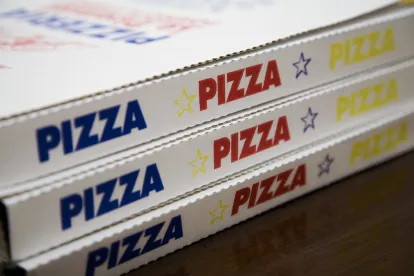The court found that trial courts lack discretion to completely deny successful employees their attorneys’ fees and costs, even if an employee acted in bad faith in bringing the claim. However, the court cautioned that its holding should not be read as a free ticket for attorneys to over-litigate their cases in an attempt to recover excessive fees and costs. As the court explained, trial courts still have the discretion to drastically reduce (albeit not altogether eliminate) an employee’s fee and cost requests if they are unreasonable.
Background Facts
Gramajo sued his employer for failure to (1) pay minimum and overtime wages, (2) provide meal and rest periods, (3) pay all wages due at time of termination, and (4) reimburse business expenses.
Gramajo sought a total recovery of $26,159.33 but was ultimately awarded just $7,659.63 following a seven-day jury trial. After this verdict, Gramajo sought to recover attorneys’ fees totaling $296,920 and an additional amount of $26,932.84 in court costs. The trial court denied these requests in their entirety. The trial court found that Gramajo had acted in bad faith by artificially inflating his alleged damages so that he met the $25,000 threshold needed to file his case as an “unlimited” matter in court. As evidence of his bad faith, the trial court noted that Gramajo said he would seek $26,159.33 — an amount just over the jurisdictional threshold — but only presented evidence at trial that he was owed $10,822.16. The trial court also found that the case was severely over-litigated, noting that Gramajo had propounded 15 sets of written discovery requests and noticed 14 depositions despite only admitting 12 exhibits at trial.
In denying the request for fees and costs, the trial court relied on Section 1033 of the Code of Civil Procedure, which gives trial courts the discretion to deny prevailing plaintiffs their litigation costs when plaintiffs file their case as an unlimited civil case but only recover less than $25,000. Gramajo then appealed.
Court of Appeal’s Decision
The Court of Appeal reversed the decision, holding that Gramajo was entitled to recover his reasonable attorneys’ fees and litigation costs under Labor Code Section 1194. The court found that the trial court erred when it relied on Code of Civil Procedure Section 1033 to deny Gramajo’s fees and costs altogether.
As the court explained, Labor Code Section 1194 provides than an employee who prevails in an action for unpaid minimum or overtime wages “is entitled to recover in a civil action . . . reasonable attorneys’ fees, and costs of suit.” The court found that Code of Civil Procedure Section 1033 and Labor Code Section 1194 were in conflict. However, since the Labor Code provision dealt more specifically with the minimum wage and overtime claims at issue in the lawsuit, the court found that its language should control. Thus, the lower court’s decision to entirely deny all fees and costs to Gramajo needed to be reversed because a prevailing minimum wage or overtime litigant is “entitled” to recover fees and costs.
Importantly, the court strongly cautioned that its holding “should not be read as license for attorneys litigating minimum and overtime wage cases to over-file their cases or request unreasonable and excessive cost awards free of consequence” and that Section 1194 only entitles a prevailing employee to the recovery of a reasonable fee and cost award. The court noted that trial courts must always use their discretion to determine what is reasonable and noted with approval an earlier decision where a court had reduced an inflated fee request of over $46,000 to a mere $500.
Takeaways for Employers
As always in California, employers ought to carefully and regularly audit their wage and hour practices so that employees are paid correctly. If a lawsuit is filed, employers must be mindful that even if the employee recovers only a small amount of minimum and overtime wages, some amount of fees and costs will be granted.




 />i
/>i
